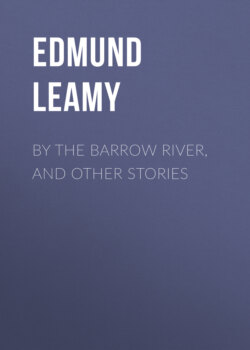Читать книгу By the Barrow River, and Other Stories - Edmund Leamy - Страница 3
На сайте Литреса книга снята с продажи.
FOREWORD
ОглавлениеTable of Contents
Edmund Leamy was the beau-ideal of a chivalrous Irish gentleman, patriot, and Christian. During a friendship extending over many years, I never knew him fall short in the slightest particular of the faith I had in him. His nature was poetic and romantic in the highest degree. Through sunny and cloudy day alike he was Ireland’s man, and his faith in her ultimate destiny was never shaken. I have never known a nature more lofty or more lovable. Long years of weak health and suffering, under which most people would have sunk, could not alter his noble nature. He kept his great, loving, true heart to the last. Even if things were sad enough for him, it was happiness if they were well with friends and neighbours. He did not know what it was to have a grudging thought. The experiences which usually make middle-age a period of disillusionment came to him as to other men, yet he was never disillusioned; he had the heart of an innocent and trusting boy till the day he died. To be sure there was one by his hearth who helped to keep his illusions fresh; and his burden of ill-health was lightened for him by God’s mercy through the same bright and devoted companionship. He was Ireland’s man; all he did was for Ireland. He could not have written a line of verse or prose for the English public, however sure he might be of its suffrage and reward. He wrote a great deal for Ireland, and although, I believe, he reached his highest development as an orator, an orator, alas, sorely hampered by physical weakness, yet his stories and his poems have so much of the personality of the man, the fresh, honest, and sweet personality, that it has been thought well to rescue just a handful from his many writings in Irish journals extending over a number of years. He had not the leisure to make himself exclusively a literary man. He was always in the thick of the fight; it would have broken his heart to be otherwise. But the work he has left, especially his fairy tales and dramatic stories, with their wealth of colour and their imaginativeness, give some earnest of the work he might have done. His book of Irish Fairy Tales, which has long been out of print, has been republished in a worthy form; and I am sure the present volume, which shows his fancy in a different vein, which contains a set of stories that have not been brought together before, will also be welcome to his countrymen. Were I to write his epitaph it would be—“Here lies a white soul!”; and if I had to name the virtue paramount in him it would be Charity, which in him included Faith and Hope.
Katharine Tynan.
St. Patrick’s Day, 1907.
